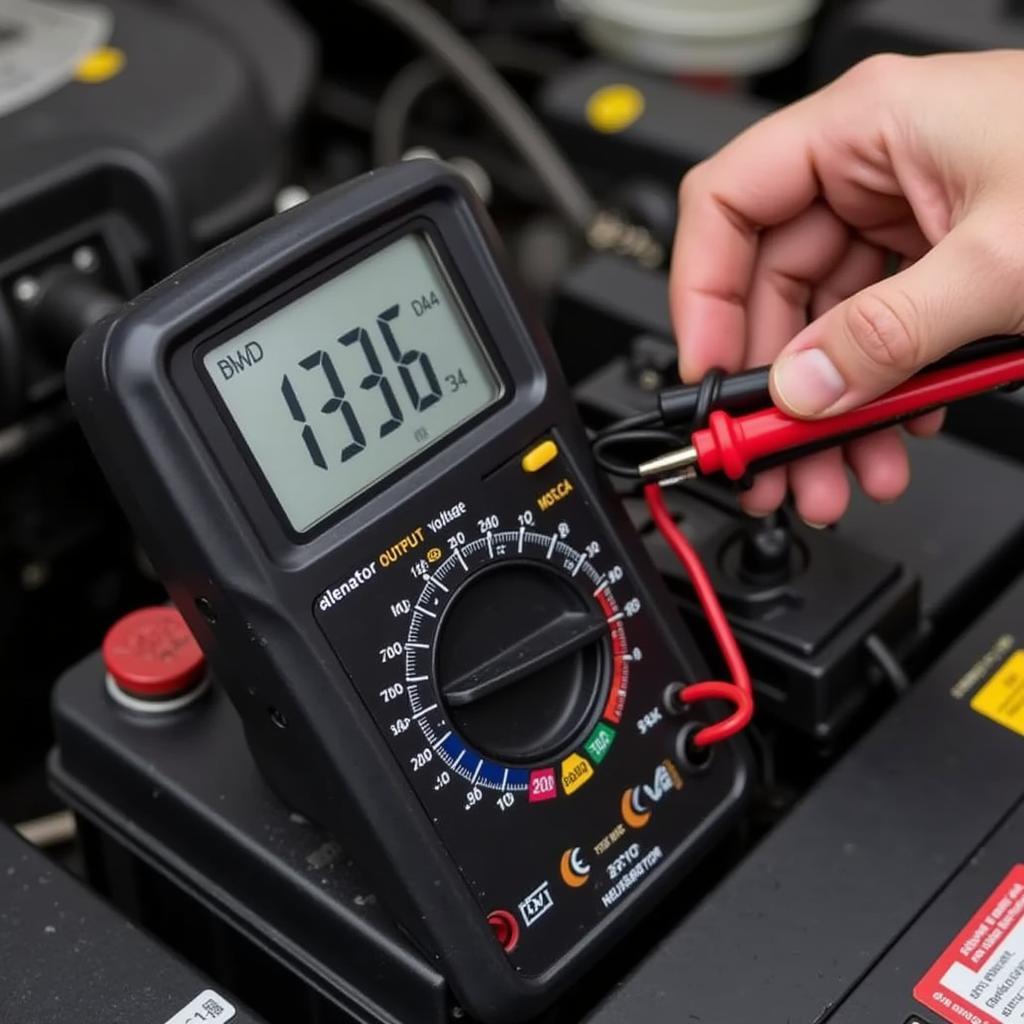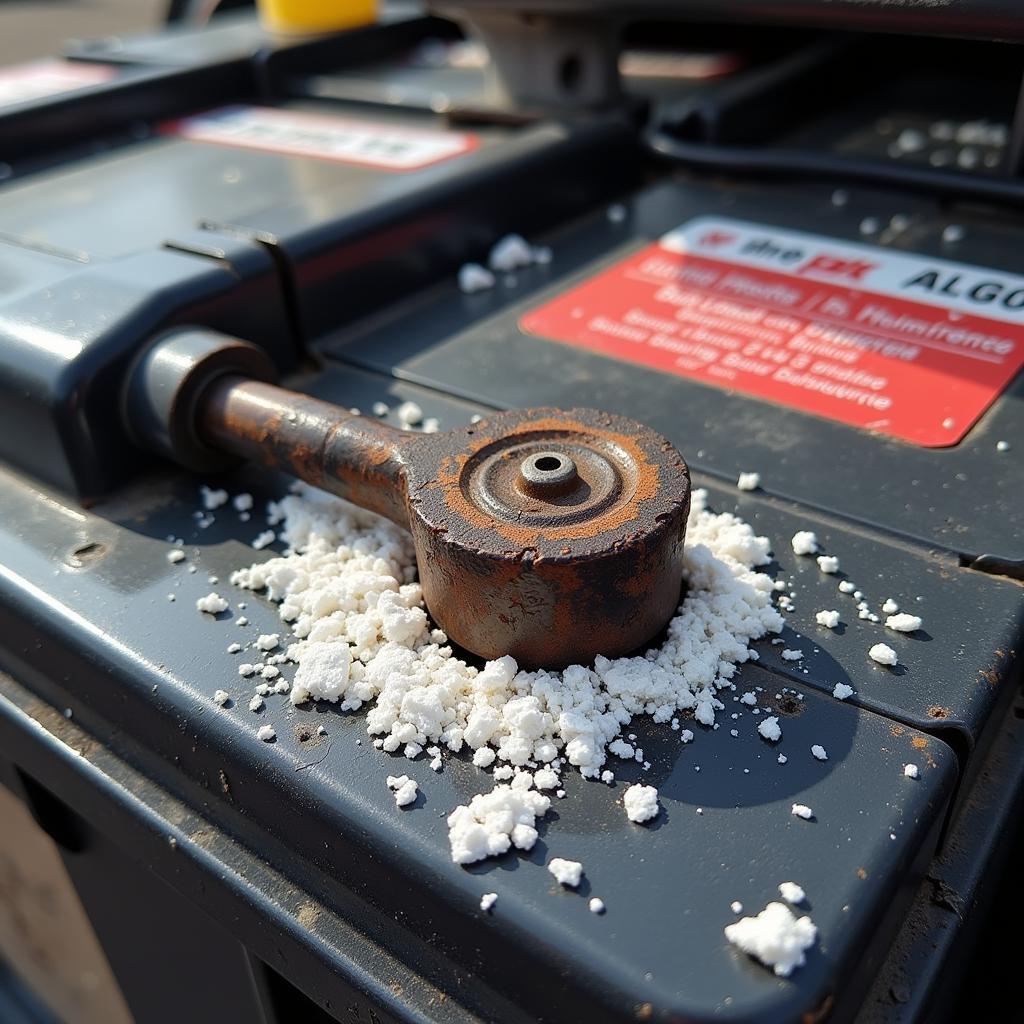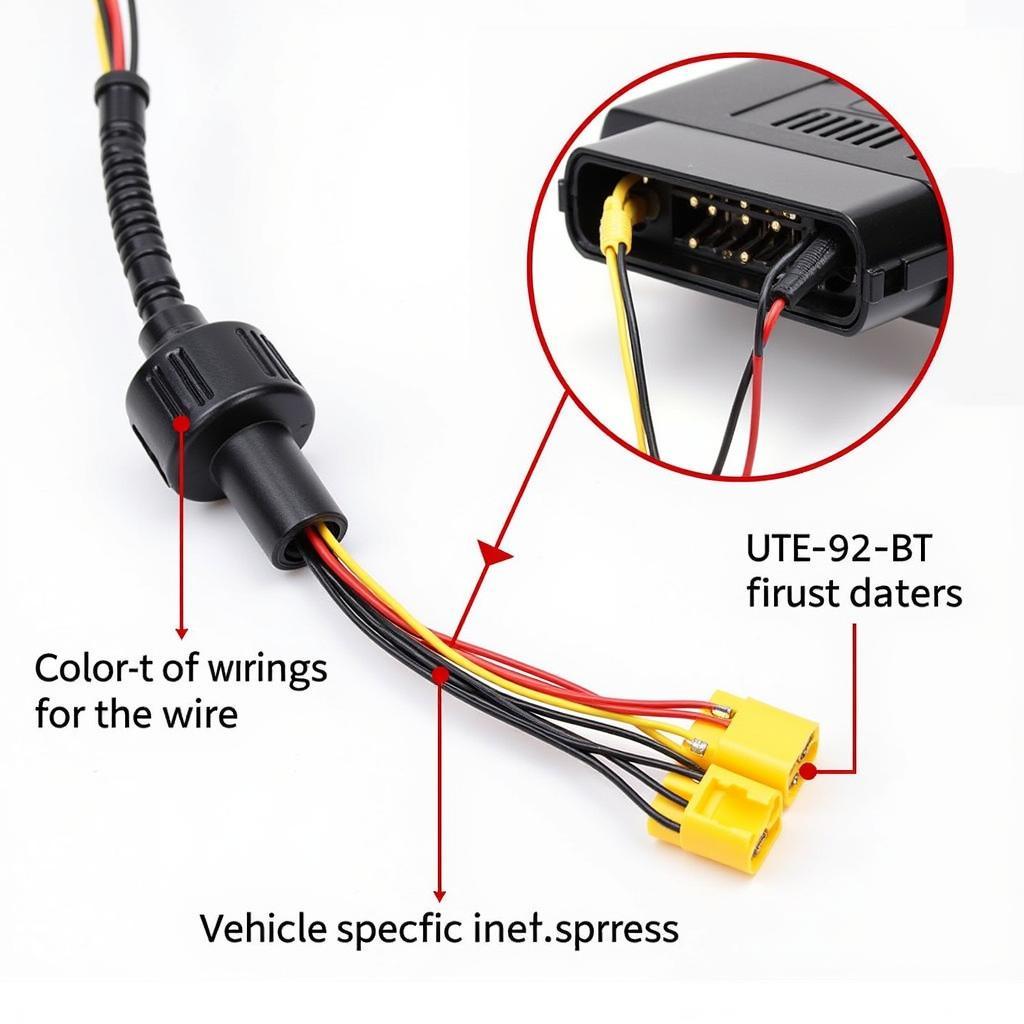A car battery not recharging can leave you stranded. This article covers the common causes, troubleshooting steps, and solutions for a car battery that refuses to charge, empowering you to get back on the road. Learn how to diagnose the problem and find the best fix.
 Car Battery Not Recharging: Alternator Test
Car Battery Not Recharging: Alternator Test
Why is My Car Battery Not Recharging?
Several culprits can cause a car battery not recharging issue. These range from a faulty alternator to corroded battery terminals and even parasitic drains. Identifying the root cause is the first step towards a solution. A dying battery can also cause similar symptoms, making it crucial to differentiate between a bad battery and a charging system problem. Have you considered checking for signs of bad golf cart batteries? While not directly related to car batteries, the principles of battery health are similar.
Common Causes of a Car Battery Not Recharging
- Faulty Alternator: The alternator is the heart of your car’s charging system. If it fails, the battery won’t receive the necessary charge.
- Corroded Battery Terminals: Corrosion on the battery terminals can disrupt the flow of electricity, preventing the battery from charging properly.
- Loose or Damaged Battery Cables: Similar to corroded terminals, loose or damaged cables can hinder the charging process.
- Bad Voltage Regulator: The voltage regulator controls the alternator’s output. A faulty regulator can overcharge or undercharge the battery.
- Parasitic Drains: These are electrical components that continue to draw power even when the car is off, slowly draining the battery.
- Faulty Wiring: Damaged wiring in the charging system can disrupt the flow of electricity.
- Serpentine Belt Issues: A worn or broken serpentine belt can prevent the alternator from spinning, thus hindering charging.
 Car Battery Not Recharging: Corroded Terminals
Car Battery Not Recharging: Corroded Terminals
Troubleshooting a Car Battery Not Recharging
How do you figure out what’s wrong? Here’s a step-by-step guide to help you troubleshoot the problem:
- Visual Inspection: Start by checking the battery terminals for corrosion. Also, inspect the battery cables for any damage or looseness.
- Battery Voltage Test: Use a multimeter to check the battery voltage. A fully charged battery should read around 12.6 volts.
- Alternator Test: With the engine running, the voltage should be between 13.5 and 14.5 volts. A lower reading indicates a potential alternator problem.
- Parasitic Drain Test: With the car off, disconnect the negative battery cable and connect a multimeter in series. A reading above 50 milliamps suggests a parasitic drain.
- Serpentine Belt Inspection: Visually inspect the serpentine belt for wear, cracks, or breaks.
How Can I Test My Car Alternator at Home?
You can test your alternator at home using a multimeter. With the engine running, connect the multimeter to the battery terminals. A reading between 13.5 and 14.5 volts indicates a functioning alternator. Anything significantly lower suggests a potential alternator issue.
“A simple voltage test can save you a trip to the mechanic,” says automotive electrical expert, John Smith, ASE Certified Master Technician. “It’s a quick way to rule out the alternator as the culprit.”
Solutions for a Car Battery Not Recharging
Once you’ve identified the problem, you can implement the appropriate solution:
- Clean Corroded Terminals: Clean the terminals with a baking soda and water solution.
- Tighten or Replace Cables: Secure loose cables or replace damaged ones.
- Replace the Alternator: A faulty alternator often needs replacement.
- Replace the Voltage Regulator: A bad voltage regulator also requires replacement.
- Address Parasitic Drains: Identify and fix the source of the drain.
- Repair or Replace Wiring: Repair or replace any damaged wiring.
- Replace the Serpentine Belt: Replace a worn or broken serpentine belt.
Sometimes, after jump-starting your vehicle, you might face issues such as the car not starting after jump, which could point towards a more serious underlying problem. Understanding the various car battery discharge causes can help in preventing recurring battery problems. In some cases, my car battery dies every few days, which could indicate a significant drain on the battery even when the vehicle is off. This is often related to a parasitic draw and necessitates a thorough check of the electrical system. The issue with the 2019 Jeep Cherokee Latitude encountering 2019 jeep cherokee latitude battery problems showcases how even newer vehicles can face battery-related challenges.
“Regular maintenance is key,” advises Sarah Jones, Lead Technician at Auto Electric Solutions. “Inspecting your battery and charging system regularly can prevent many of these issues.”
Conclusion
A car battery not recharging can be a frustrating experience. By understanding the common causes, troubleshooting steps, and solutions outlined in this article, you can effectively diagnose and fix the problem, getting you back on the road quickly. Don’t let a dead battery stop you! Regular maintenance and prompt attention to any signs of trouble can save you time, money, and hassle in the long run. Remember to always check for a car battery not recharging issue if your vehicle experiences starting problems.

